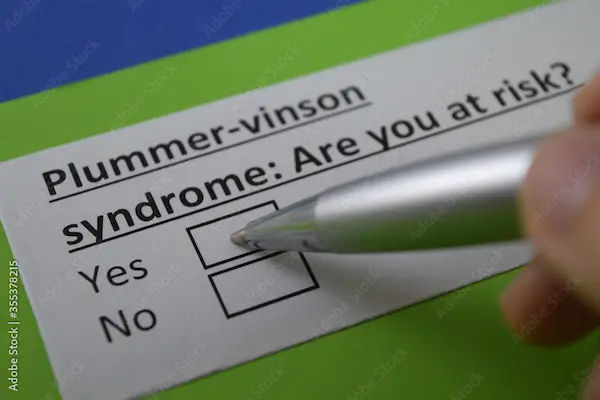Understanding Dysphagia: Causes and Treatment Options
Dysphagia, or difficulty swallowing, can result from various causes, including neurological conditions and structural issues. Learn about its common symptoms, diagnostic methods, and effective treatment options to improve quality of life.

Written by Dr. Rohinipriyanka Pondugula
Reviewed by Dr. Vasanthasree Nair MBBS
Last updated on 13th Jan, 2026

Introduction
Have you ever felt like food or liquid is stuck in your throat while swallowing? Or experienced discomfort when trying to eat or drink? If so, you might be dealing with dysphagia, a medical term for difficulty in swallowing. While occasional swallowing trouble can happen to anyone, persistent dysphagia should not be ignored, as it may indicate an underlying health issue.
This article will help you understand dysphagia—its causes, symptoms, and treatment options—so you can take the right steps toward better health.
What is Dysphagia?
Dysphagia is a condition where swallowing becomes difficult or painful. It can occur at any age but is more common in older adults. Swallowing involves a complex coordination of muscles and nerves, and when something disrupts this process, dysphagia can develop.
There are two main types of dysphagia:
1. Oropharyngeal Dysphagia – Difficulty starting the swallowing process, often due to nerve or muscle problems in the mouth or throat.
2. Esophageal Dysphagia – The feeling of food getting stuck in the chest or throat after swallowing, usually due to issues in the esophagus (the tube connecting the throat to the stomach).
Common Symptoms of Dysphagia
If you experience any of the following symptoms frequently, you may have dysphagia:
Pain while swallowing (odynophagia)
Feeling like food is stuck in the throat or chest
Drooling or inability to control saliva
Frequent choking or coughing while eating/drinking
Regurgitation of food or liquids
Unexpected weight loss due to difficulty eating
Recurrent heartburn or acid reflux
If left untreated, dysphagia can lead to malnutrition, dehydration, or even aspiration pneumonia (when food or liquid enters the lungs).
What Causes Dysphagia?
Dysphagia can result from various conditions, including:
1. Neurological Disorders
Stroke – Affects brain signals needed for swallowing.
Parkinson’s disease, Multiple Sclerosis (MS), or ALS – These conditions weaken muscles over time.
Dementia – Can impair coordination needed for swallowing.
2. Structural Problems
GERD (Chronic Acid Reflux) – Can cause esophageal narrowing (strictures).
Esophageal Tumors or Growths – Block the passage of food.
Diverticula (Small Pouches in the Esophagus) – Trap food, making swallowing difficult.
3. Muscle Weakness or Damage
Aging – Natural weakening of throat muscles.
Radiation Therapy (for throat cancer) – Can cause scarring.
Myasthenia Gravis – A condition causing muscle fatigue.
4. Other Causes
Dry Mouth (Xerostomia) – Lack of saliva makes swallowing harder.
Dental Problems – Missing teeth or ill-fitting dentures can affect chewing.
Consult a General Physician for the best advice
How is Dysphagia Diagnosed?
If you suspect dysphagia, consult a doctor who may recommend:
Barium Swallow Test – You swallow a liquid containing barium, which helps Xrays show swallowing issues.
Endoscopy – A tiny camera examines your esophagus.
Manometry – Measures muscle contractions in the esophagus.
CT Scan or MRI – Checks for structural abnormalities
Treatment Options for Dysphagia
Treatment depends on the cause but may include:
1. Medical Treatments
Medications – For acid reflux (antacids), infections (antibiotics), or muscle relaxants.
Dilation – Stretching a narrowed esophagus.
Surgery – To remove tumors or repair structural issues.
2. Swallowing Therapy (Speech Therapy)
A speech language pathologist (SLP) can teach exercises to strengthen swallowing muscles and recommend safer swallowing techniques.
3. Dietary Changes
Eat Soft or Pureed Foods – Easier to swallow.
Thicken Liquids – Reduces choking risk.
Smaller, Frequent Meals – Less strain on swallowing.
Avoid Alcohol, Spicy, or Acidic Foods – Can worsen reflux.
4. Lifestyle Adjustments
Sit Upright While Eating – Helps food go down smoothly.
Chew Thoroughly – Makes swallowing easier.
Stay Hydrated – Prevents dry mouth.
When to See a Doctor?
Seek medical help if you:
Experience persistent difficulty swallowing.
Lose weight unintentionally.
Have frequent choking or coughing while eating.
Notice blood in vomit or stool.
Early diagnosis can prevent complications like malnutrition or lung infections.
Final Thoughts
Dysphagia can be distressing, but with the right care, many people manage it effectively. If you or a loved one struggles with swallowing, don’t ignore it—consult a healthcare provider for proper evaluation and treatment.
Need help? You can book a consultation with a specialist on Apollo 24|7 for expert advice and diagnostic tests.
Stay informed, take care of your health, and never hesitate to seek help when needed!
Would you like more personalized advice? Schedule an appointment today and get the support you deserve!
Consult a General Physician for the best advice
Consult a General Physician for the best advice

Dr. Rajib Ghose
General Physician/ Internal Medicine Specialist
25 Years • MBBS
East Midnapore
VIVEKANANDA SEBA SADAN, East Midnapore

Dr Divya Lekha Gunta
General Practitioner
10 Years • MBBS, MD (Pathology)
Visakhapatnam
Apollo 24|7 Clinic - Andhra Pradesh, Visakhapatnam

Dr. Siri Nallapu
General Practitioner
5 Years • MBBS
Hyderabad
Apollo 24|7 Clinic, Hyderabad

Dr. Shesham Srinidhi
General Practitioner
5 Years • MD(physician)
Hyderabad
Apollo 24|7 Clinic, Hyderabad
(150+ Patients)

Dr. B Sivananda Reddy
General Physician
12 Years • D M ( OSMANIA MEDICAL COLLEGE, KNRUHS ) MD ( KASTURBA MEDICAL COLLEGE , MAHE) MBBS ( PESIMS&R, NTRUHS).
Secunderabad
Apollo Hospitals Secunderabad, Secunderabad
